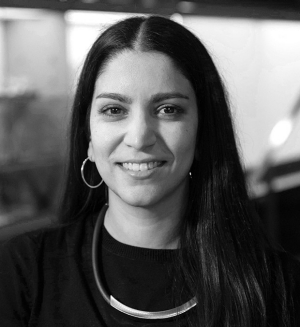When Tim Berners-Lee invented the World Wide Web in the 1990s, his vision was for a decentralized, open and free system that would enable knowledge sharing by individual users.
What started as a way for scientists and researchers to quickly and efficiently share their findings soon became part of mainstream culture. Extending across borders and connecting people in ways never thought possible, the information superhighway gave rise to a new era of communication.
More than 4.6 billion people around the world — or close to 60 per cent of the global population — now have access to the internet, according to Statista, a market and consumer data company. While internet technology has benefited society in a multitude of ways, from instant communication and telehealth care to online banking and business transactions, it has also exposed a darker, more dangerous side of the web — one with grave consequences.
It has grown into an incubator for extremists to recruit, plan, finance far-right groups and spread disinformation, conspiracy theories and hate speech. And as more of the world plugs into the web, the internet’s potential — for good or for ill — will increase.
With information now so easily available, shared, monitored and manipulated, the question is: Where do we go from here?
In a 2019 interview with The Guardian, Berners-Lee offered a hopeful response: “Given how much the web has changed in the past 30 years, it would be defeatist and unimaginative to assume that the web as we know it can’t be changed for the better in the next 30. If we give up on building a better web now, then the web will not have failed us. We will have failed the web.” Concordia researchers and alumni, too, have hope, and offer a way forward in making the web a safer, better-connected place in our cover story.
Our spring issue also highlights some of the Concordians working to preserve and protect biodiversity for a more resilient future; examines the rise of cryptocurrencies such as Bitcoin and Ethereum and how they’re changing the global financial system; and introduces some travel and tourism industry leaders in our latest Women and Leadership series.
I hope you enjoy reading these and other inspiring stories about how our community of alumni, donors, students and friends stays connected to Concordia. These pieces would not have come together without the support of my colleague and associate editor, Ian Harrison, BComm 01. He played a key role in this issue, and for that I thank him.
Finally, as another academic term comes to a close, we’re welcoming a new cohort of graduates to our alumni family. They — along with those who graduated in 2020 and 2021 — will finally have the opportunity to attend their much-anticipated, in-person convocation ceremonies surrounded by family and peers. My congratulations to each one of them.
Until our next issue, I wish you all the best. And, as always, I invite you to write to me with your feedback and news. I love reading what you have to say.


